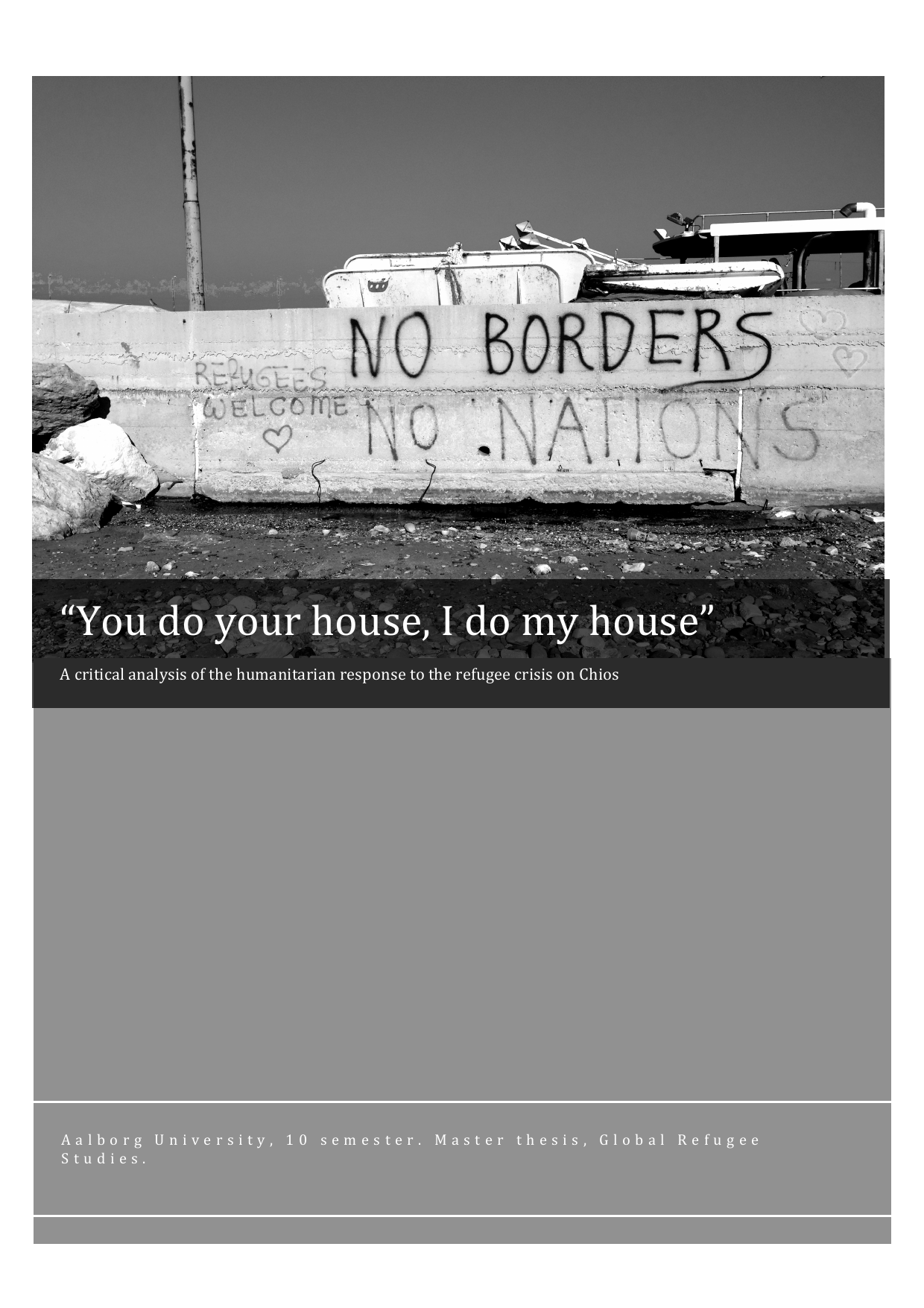
You do your house, I do my house: A critical analysis of the humanitarian response to the refugee crisis on Chios
Translated title
Authors
Term
4. term
Education
Publication year
2016
Submitted on
2016-05-29
Pages
142
Abstract
This thesis seeks to explain how the humanitarian actors can facilitate a coherent response to the refugee crisis on Chios in order to meet the needs of the arriving migrants and refugees. Through Biermann’s theory of inter-organizationalism we were able to identify gaps and challenges as well as understanding the cooperation between the humanitarian actors on Chios, in order to answer the research question. The analysis is divided into three sections, where each section enables us to answer our chosen research question. The first section analyzes the creation of new organizations and regimes on Chios, as new problems in regards to the refugee crisis appeared. We conclude that all stakeholders play an essential part as gap fillers in the humanitarian response, because firstly; the newly established NGOs cover the humanitarian needs of food, clothing and medical services on beach level where the migrants arrive. Secondly, the major actors are covering the areas of legal assistance, campsite management and in the field of coordination in order to construct a process of a single flow of migrants on the island. The second section analyzes challenges in cooperating amongst different actors present on Chios. This is explained by the difficulties of bridging organizational culture, due to differences in operational standards and procedures. The use of approaches based on different rationale leads to incompatibility and diversity in practice. Another major obstacle for humanitarian organizations in utilizing standards is the complexity of the emergency on Chios. We conclude that it is to some extent necessary to have standards for newly established actors in the humanitarian field, even though standards have proven to be too rigid and hamper improvising skills. By adhering to a minimum standard it is possible to create more synergy and continuity in the humanitarian field. Thereby, it would be easier to cover all gaps and needs on the island, and resources would be spent more efficiently. The third section analyzes strengths of cooperation and the possibility to take advantage of overlaps in the field and therefore share the burden. It is clear that the incentives to cooperate on Chios grow when organizations are dealing with problems that are difficult to handle alone. It is evident that the major actors can benefit from being connected to organizations working in the grey areas, as they provide solid information on timing and places of boat landings. We conclude that sharing of best practices and exchanging experiences across organizational levels is important on Chios as a cooperation tool. It contributes to ensure quality in the humanitarian work, as well as it stimulates cooperation and the present actors can find better solutions for problem solving. There has not been enough sharing of good practices on the different islands in Greece, Chios included. Sharing of best practice to enhance quality and professionalize the response on the island is highly necessary, especially in regards to medical services for arriving migrants. By strengthening cooperation across organizational levels, and by limiting the challenges encountered in this thesis, it is possible facilitate a more coherent approach to the refugee crisis to meet the needs of the migrants on Chios.
Keywords
Documents
